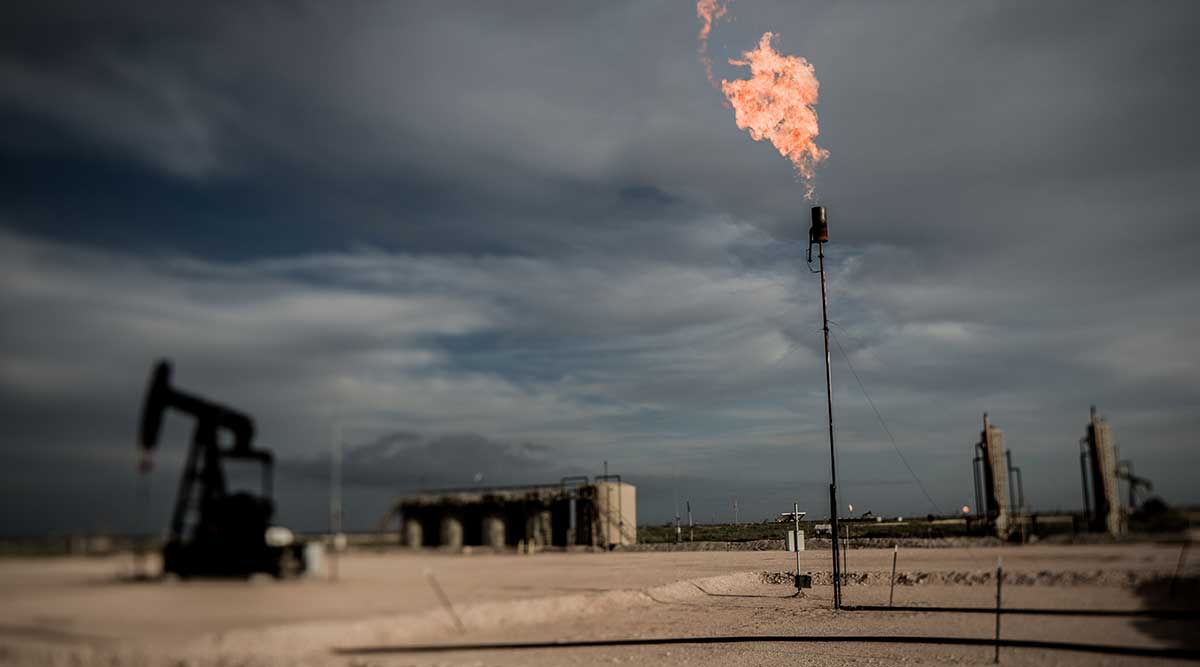Oil Near 12-Year Low as China Volatility Stays in Focus

Oil traded near a 12-year low Jan. 8 as investors focused on volatility in Chinese markets after the country sought to quell losses in equities and stabilize its currency.
Futures were steady, erasing earlier gains after China suspended an equity circuit breaker system, set a higher yuan reference rate and directed state-controlled funds to buy shares.
Oil briefly resumed gains after government data showed U.S. payroll growth surged in December, capping the second-best year for American workers since 1999. Crude slid Jan. 7 to the lowest level since December 2003 on turbulence in the world’s biggest energy consumer.
The turmoil in China is compounding the negative effect of U.S. crude stockpiles, which remain more than 120 million barrels above the five-year average. Analysts from Nomura Holdings Inc. to UBS Group AG predict oil may fall near $30 a barrel while the Organization of Petroleum Exporting Countries has effectively discarded output limits to defend market share amid a global glut.
"Despite the spectacular jobs numbers, oil has a lot going against it on both the supply and demand fronts," John Kilduff, a partner at Again Capital, a New York-based hedge fund that focuses on energy, said by phone. "On the supply side we have the major producers beating up each other as they fight for market share. Worries about China and its neighbors are raising concerns about key demand centers."
West Texas Intermediate futures for February delivery rose 12 cents to $33.39 a barrel at 9:28 a.m. on the New York Mercantile Exchange Jan. 8. The contract slid 2.1 percent to $33.27 on Jan. 7, the lowest close since February 2004. Total volume traded was 20% above the 100-day average. Prices are down 9.9% this week.
Brent for February settlement gained 16 cents to $33.91 a barrel on the London-based ICE Futures Europe exchange. The contract dropped to $33.75 on Thursday, the lowest close since June 2004. The European benchmark crude traded at a 52 cent premium to WTI.
More than $4 trillion has been erased from the value of global equities this year amid renewed concern about China’s economy. The nation baffled investors with a seemingly contradictory approach to the yuan, fueling anxiety over the ability of policymakers to manage slowing growth.
U.S. payrolls rose by 292,000 in December, exceeding the highest forecast in a Bloomberg survey and followed a 252,000 increase in November that was stronger than estimates, a Labor Department report showed Friday.
"The U.S. employment data is the only really good economic news we’ve had in a long time," Kilduff said.
Saudi Arabian Oil Co., the world’s largest crude producer, confirmed Jan. 8 it’s studying a potential sale of shares. The company controls about 260 billion barrels of oil reserves, more than 10 times the amount held by Exxon Mobil Corp., which has a market value of about $317 billion.
The move, first reported in The Economist, would mark an “historic shift of the oil industry,” said Jason Bordoff, the founding director of the Center on Global Energy Policy at Columbia University. An initial public offering would be a “reaffirmation of what we have seen over the past year, that Saudi Arabia plans to let the oil market behave like a market rather than try to control it,” he said.




